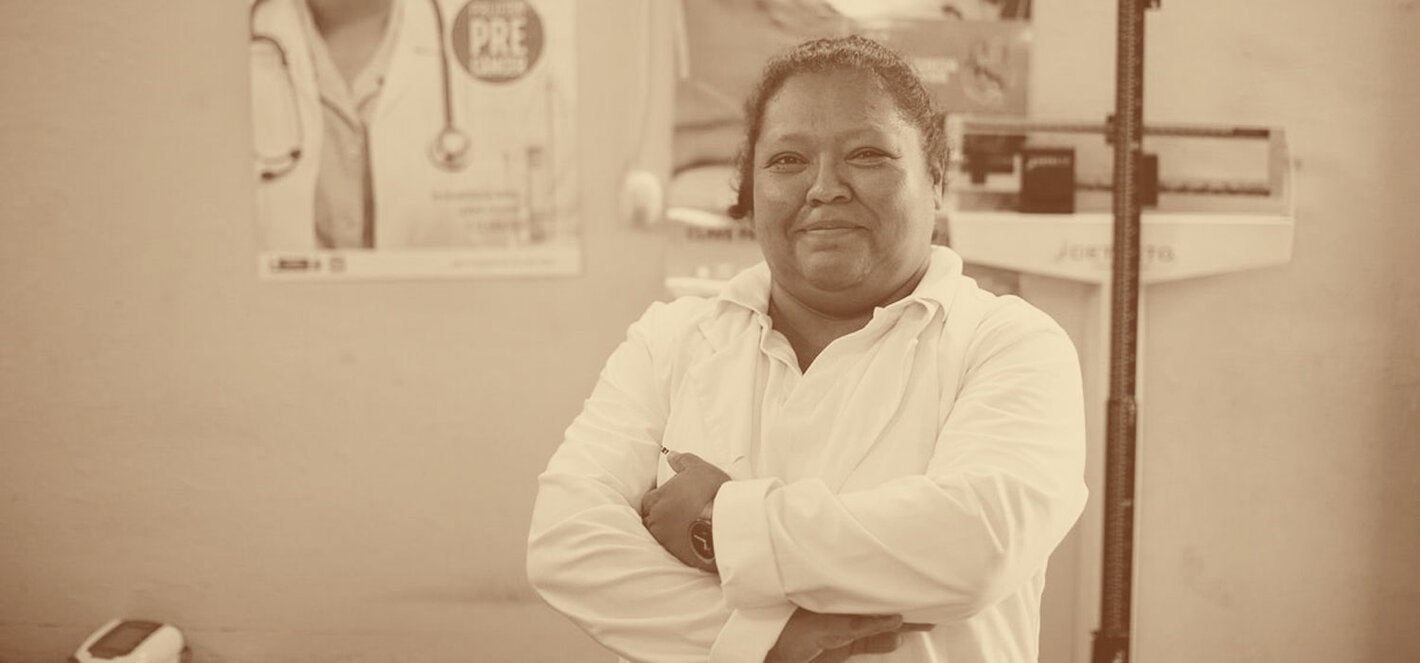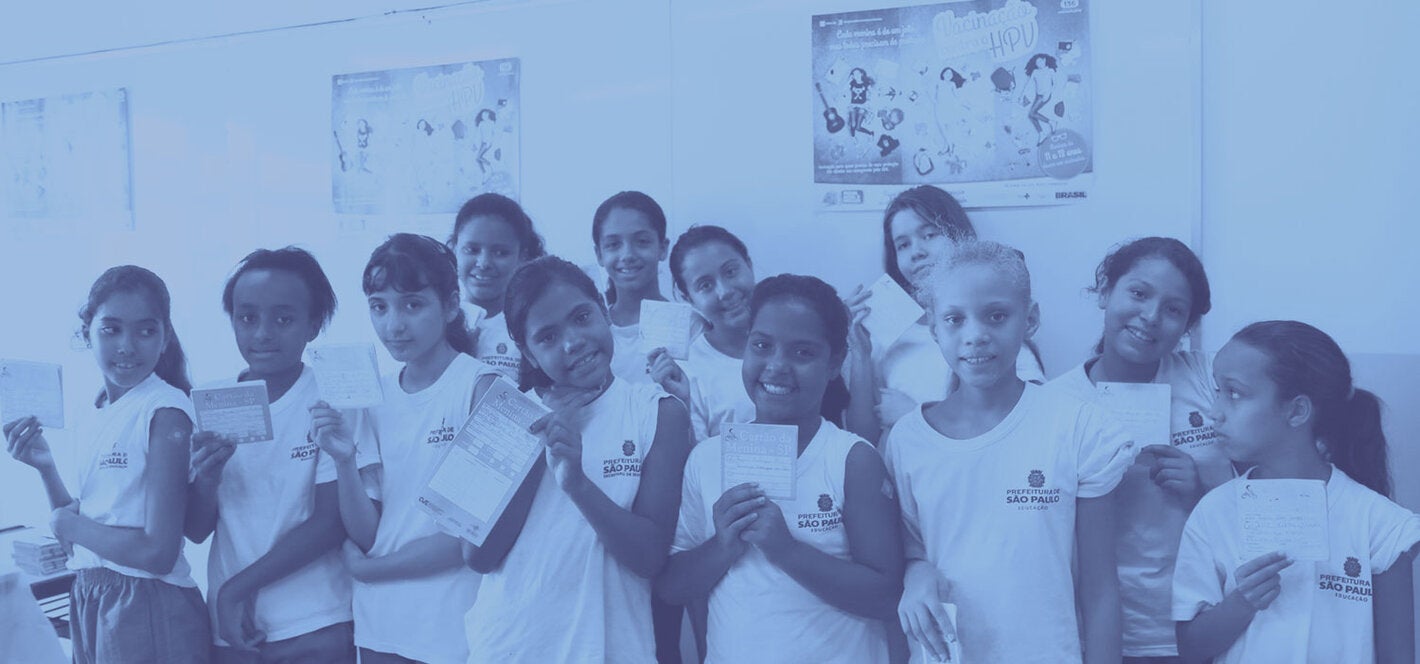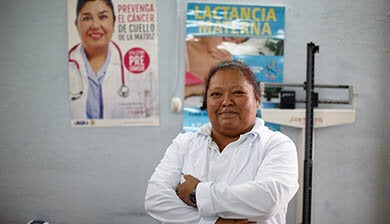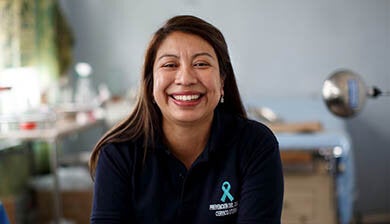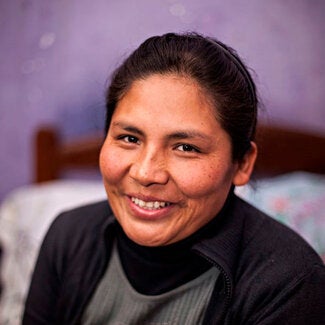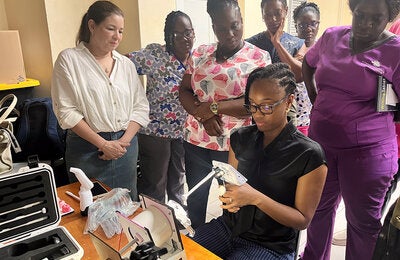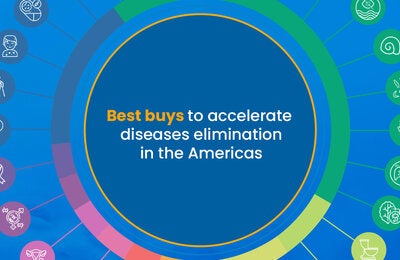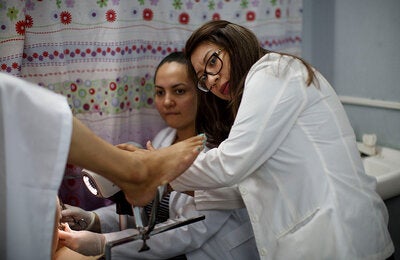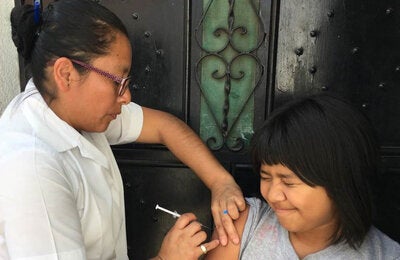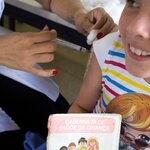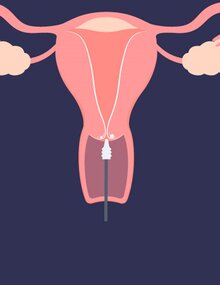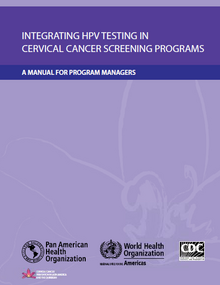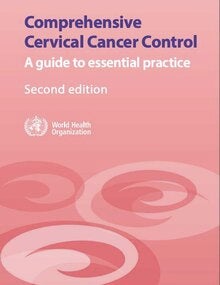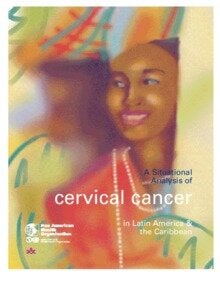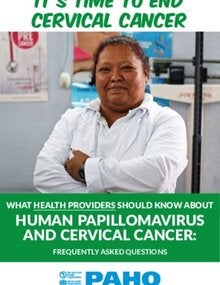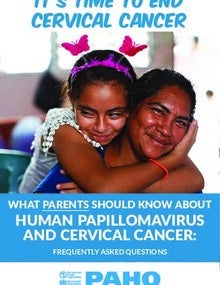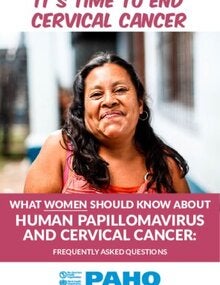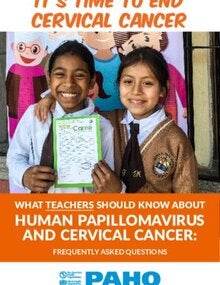Cervical cancer is preventable. It is one of the most common cancers among women in Latin America and the Caribbean. Its primary cause is the infection with high-risk human papillomaviruses (HPV). The HPV vaccine and the screening and treatment of precancerous lesions can prevent cervical cancer.
Vaccination
The vaccine against the human papillomavirus (HPV) is effective and safe. Protects against infection with HPV, which causes cervical cancer.
Screening
All adult women should undergo periodic cervical cancer screening to detect lesions in the cervix that, if left untreated, can develop into cervical cancer.
Treatment
Cervical cancer can be treated effectively if detected early. The treatment options for invasive cancer are surgery, radiotherapy, and in a minor extent, chemotherapy.
Get involved: Learn about the HPV vaccine and screening tests to prevent cervical cancer. Protect yourself, protect your daughters, and mobilize your community against cervical cancer
Everyone's problem
Cervical cancer usually affects women at the peak of their productive life. Thus in addition to the loss for the families, cervical cancer impacts on the national economies.
No one should die
No woman should die from cervical cancer since it is a preventable disease.
Commitment of all
Women should be informed and take control of their health, undergoing screening tests when appropriate. They can also inform their friends or relatives and support them in their decision to go to health services to prevent cervical cancer.
Men can help
They can encourage and support women in their families to prevent cervical cancer through vaccination or screening.
Parents, and guardians can facilitate vaccination
Parents of adolescents of age to be vaccinated against HPV can learn about the benefits of the vaccine and facilitate the vaccination of their daughters.
Professionals and teachers must be informed
To know the causes of cervical cancer, the options for its screening and treatment as well as to be able to explain the advantages of vaccination and screening.



